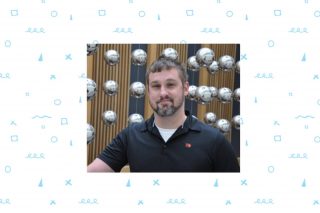Overcome Applicant Tracking Systems: Keenan Casavant’s Job Search Success Story

Share
Keenan Casavant embarked on a new job search with a clear focus. He knew that mentoring students and working in an educational environment were his ultimate career aspirations. It took him seven months to overcome applicant tracking systems, identify a new career direction, and secure his next opportunity. Keenan recommends staying persistent and finding tools to keep you focused and help you de-stress to unlock a successful job search.
What do you do for a career? Who do you work for?
I work in financial risk management, business continuity, and process improvement at Oregon State University in Corvallis, Oregon.
How long did it take you to find this job?
One could argue it has taken me almost four years to get here if we count graduation from my business program in 2016. However, this type of position in particular took almost seven months.
How did you find your job? What resources did you use? What tool or tactic helped the most?
Know the places you want to work, what you want to do and why. This will narrow your tactics and tools. For me, I mentor business students and really came to enjoy being on a college campus. Thus, I focused on what I could do and where I could go.
The tactic was to apply and then apply again… and again. Rinse and Repeat. Hiring today is so impersonal and inefficient. You have to keep applying, have to keep looking for possibilities to interview – even if it is clearly something you are unlikely to get. Hardest part here? Keeping sane. Tools to destress are a must.
I gained information and resources from Harvard Business Review podcasts and the Mac’s List podcast. Networking through the College of Business at OSU has been valuable. It did nothing to get me close to this position – but it was how I realized this is where I want to be.
What was the most difficult part of your job search? How did you overcome this challenge?
It’s increasingly difficult to narrow a multi-faceted problem down to a single maximum difficulty. However, if I had to choose it would be the Applicant Tracking System.
What started as an effective way to organize and track applicants has grown into a passive hiring nightmare. Algorithms negate hours of application work in a fraction of a second, and we’ve even gotten to the point where if applicants reach out to human resources or a hiring manager they are thrown out of the process.
How did I overcome this exactly? The answer is, I am not really sure I did. My resume was formatted multiple ways, tried through many filters, tweaked by recruiters… you name it. Despite all of these changes, my resume would still hit a wall.
Each system and company has a proprietary methodology. Where one would rank me on specific keywords, others would rank on job title or filter by some sort of university list. Recruiters would become hopeful, only to dump me on the roadside when the ATS shot me out. Quite frustrating.
What kept me going is just hitting my quota of ten applications a day at a minimum.
What is the single best piece of advice you would offer other job-seekers?
Everyone has advice, and there really is too much advice out there – particularly bad or (even worse) outdated advice. Over time, I found it useful to actually tune advice out and only seek what I needed for my specific situation – risk and data analytics.
Informational interviews are a sound way to gain knowledge (learned that from Mac’s List) but be ready for rejection. Many folks are doing this, and all it takes is one person before you to turn off that point of contact and anyone moving forward can be viewed as an annoyance. When you do go, try not to be surprised at how little they know how hiring works at their firm. While I did gain some value, this tactic didn’t really suit my needs.
Change direction, when you need to, and when it makes sense. While I have some real horsepower behind business analytics, companies did not see that. No matter the attempt to do so, I could never escape my job titles or find a single soul to take me seriously.
Of course that stinks and was a hard realization. But, I quickly realized that I could easily leverage my enterprise risk management and insurance background instead. So, I quit bothering with business and data analytics and shifted my focused to enterprise risk management.
What do I literally do everyday? Data analytics and business intelligence! However, not having a clear focus or direction was dragging me down. I was facing rejection and investing valuable time in a pursuit that was not working out for my career. Having a clear vision and cutting out what is not working is key.
Why do you love your job?
I am given the freedom to do what I was hired to do and I have access to mentors when I need advice and guidance.